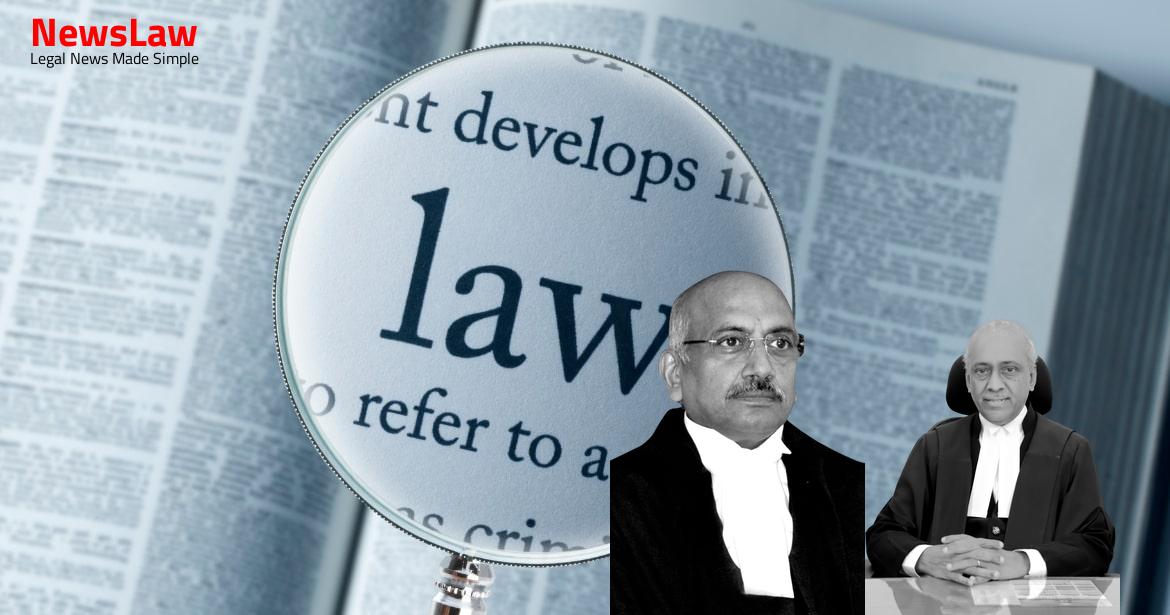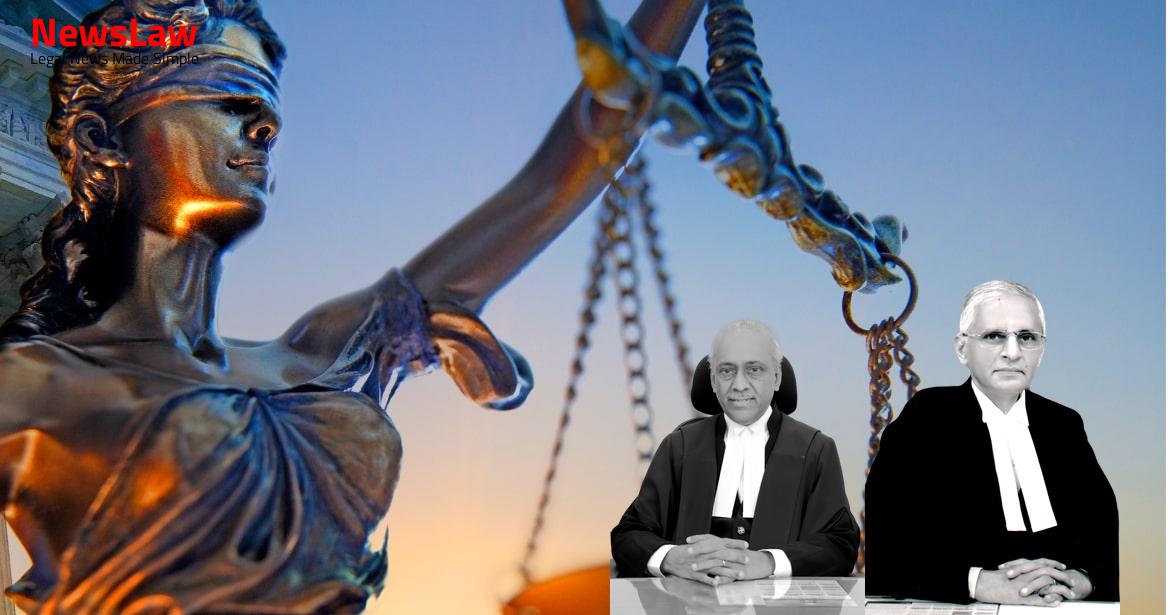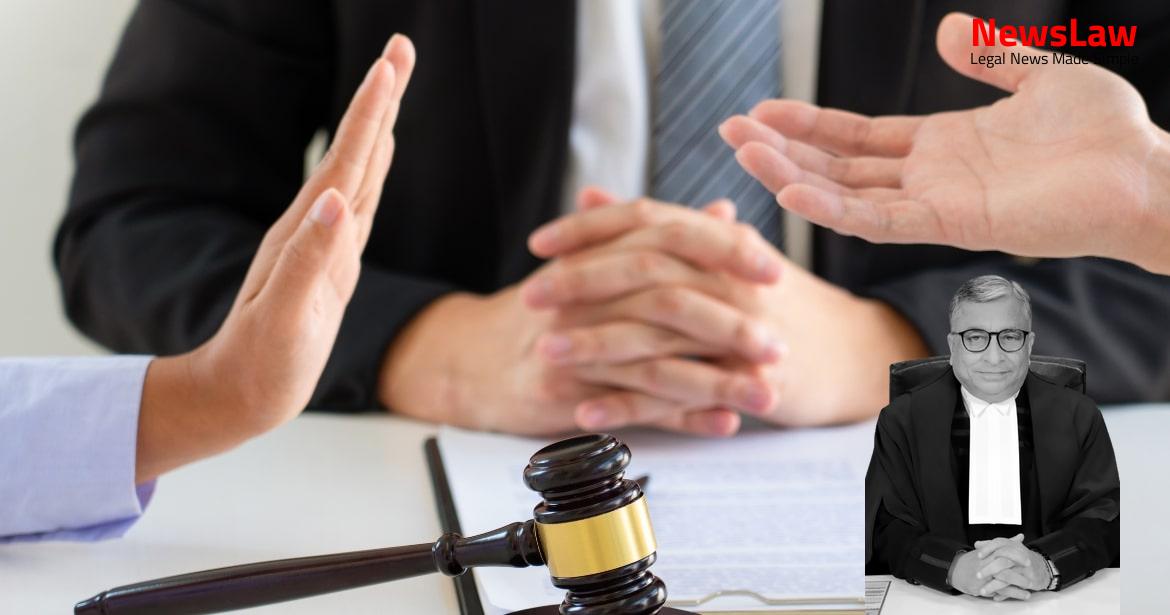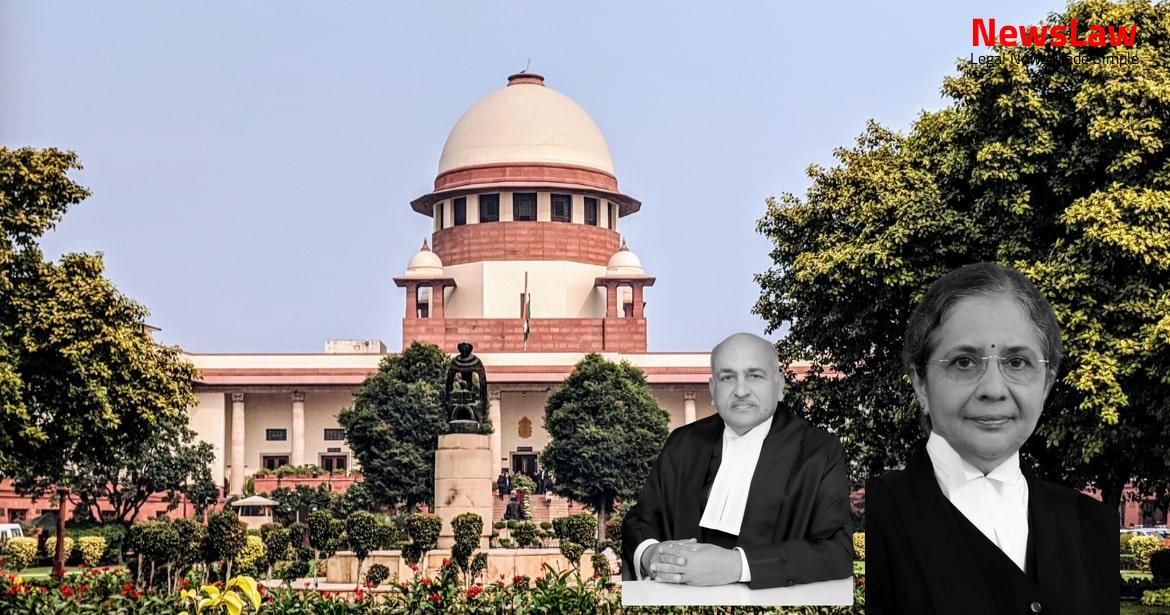The Court’s in-depth legal analysis on the reliability of documents in determining the age of a juvenile in conflict with the law sheds light on the complexities of such cases. This summary delves into the challenges faced by courts when assessing the age of individuals for the purpose of juvenile justice, emphasizing the need for trustworthy and conclusive evidence. Follow along to understand how legal precedents and principles guide age determination in sensitive legal matters.
Facts
- The appellant was accused of waylaying a car and snatching Rs. 22 lacs from its occupants on 18.01.2011.
- The appellant claimed to be a juvenile at the time of the incident based on his school record showing a birth date of 13.05.1993.
- A revision petition was filed challenging the declaration of the appellant as a juvenile in conflict with the law.
- The High Court set aside the order declaring the appellant as a juvenile and ordered him to stand trial as an adult.
- During the incident, one occupant of the car was the complainant, while another occupant, Bhim Singh, lost his life due to a bullet fired at him.
- The appellant was found entitled to an additional benefit of one year under Rule 12(3)(b) of the Rules, making him juvenile in conflict with the law.
- The High Court overturned the Additional Sessions Judge’s decision based on the family register, concluding that the appellant’s claim of juvenility could not be accepted.
- The Board of Doctors assessed the appellant’s age at 23-24 years in their report.
- The learned Additional Sessions Judge initially determined the appellant’s age to be 22 years based on the report, later finding him to be 16 years 8 months and 5 days old.
- After remand, the Additional Sessions Judge reiterated the appellant’s age as 16 years 8 months and 5 days based on the Ossification Test report.
- Ultimately, the learned Additional Sessions Judge declared the appellant as a juvenile on January 9, 2015, accepting the appellant’s plea.
Also Read: Landmark Judgment on Compensation for Fatal Accident
Arguments
- Mr. Bhargava, Senior Counsel for the appellant argues that family register should not be used to determine the age of the juvenile under the Act and Rules.
- Cited judgments of Allahabad High Court like Hare Ram Chowdhary v. State of U.P., Anil Kumar v. Suchita, Bahadur v. State of U.P., Abdul Hakeem Pardhan and Others v. State of U.P., and Ram Murti Devi v. State of U.P. were referenced to support the contention.
- Hare Ram Chowdhary order referred the matter to the Full Bench to decide on the case of Pramod Kumar Manglik v. Smt. Sadhana Rani.
Also Read: Land Acquisition Compensation Analysis
Analysis
- The school leaving certificate and date of birth certificate relied upon by the appellant are deemed unreliable and of dubious nature.
- The family register, although maintained in accordance with the rules framed under the statute, is not considered a reliable document for ascertaining age.
- The appellant’s plea of juvenility was primarily based on the school leaving record, which was found to be unconvincing.
- The High Court cited the Family Register produced by Neeraj Kumar to refute the appellant’s claim of juvenility.
- The entries in the family register, while made by officials as part of their official duty, cannot be solely relied upon to determine age.
- The Medical Board’s assessment of the appellant’s age between 23 to 24 years did not conclusively support the claim of juvenility.
- The High Court upheld its decision to dismiss the appeal, considering the unreliable nature of the documents presented by the appellant.
- Various legal provisions and precedents were referenced to establish the necessity for genuine and trustworthy documentation in determining age.
- The conclusion of the Medical Board regarding the appellant’s age was deemed insufficient to prove juvenility beyond doubt.
- Overall, the Court found the evidence presented by the appellant to be lacking credibility, leading to the dismissal of the appeal.
- Family register entries are not made in the regular course of official duties
- Family register maintained in discharge of statutory duties under U.P. Panchayat Raj (Maintenance of Family Registers) Rules, 1970
- Medical report determining age not considered conclusive by courts or medical scientists
- Beneficial legislation principles for interpretation, not for determining juvenile status
- Date of death maintained under Registration of Birth and Deaths Act, 1969 as a public document
- No blind adoption of age based solely on medical opinion by radiological examination
- 2000 Act not meant to shelter accused of grave offences
- X-Ray Ossification Test can provide surer basis for age determination than medical expert opinion, but not infallible for exact date of birth
Also Read: Judicial Review of Search and Seizure Authorization
Case Title: MANOJ @ MONU @ VISHAL CHAUDHARY Vs. THE STATE OF HARYANA (2022 INSC 186)
Case Number: Crl.A. No.-000207-000207 / 2022



